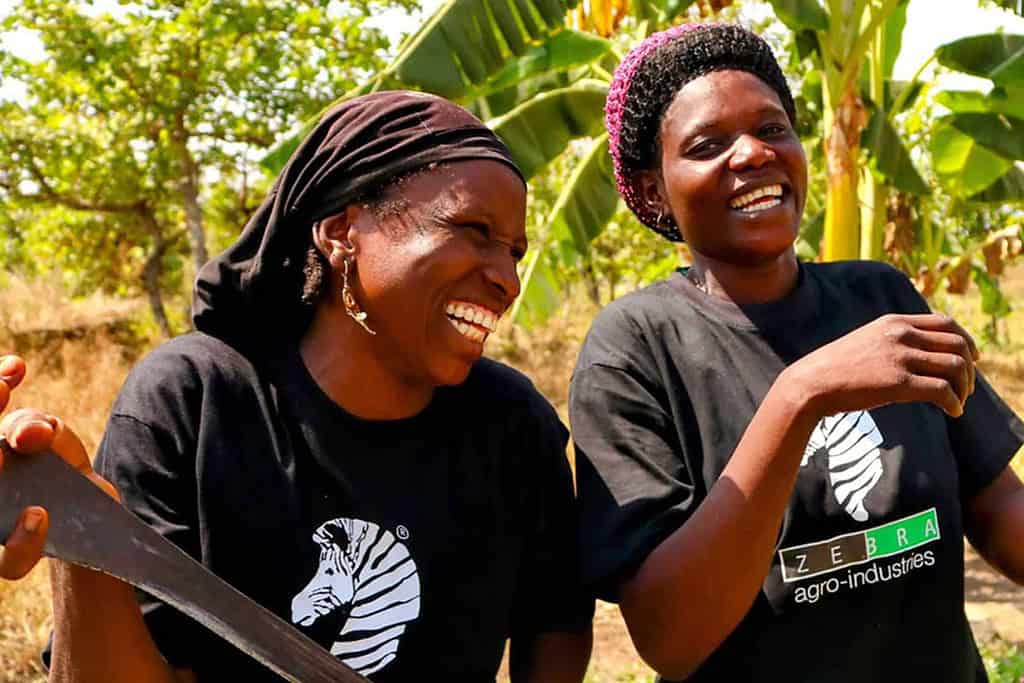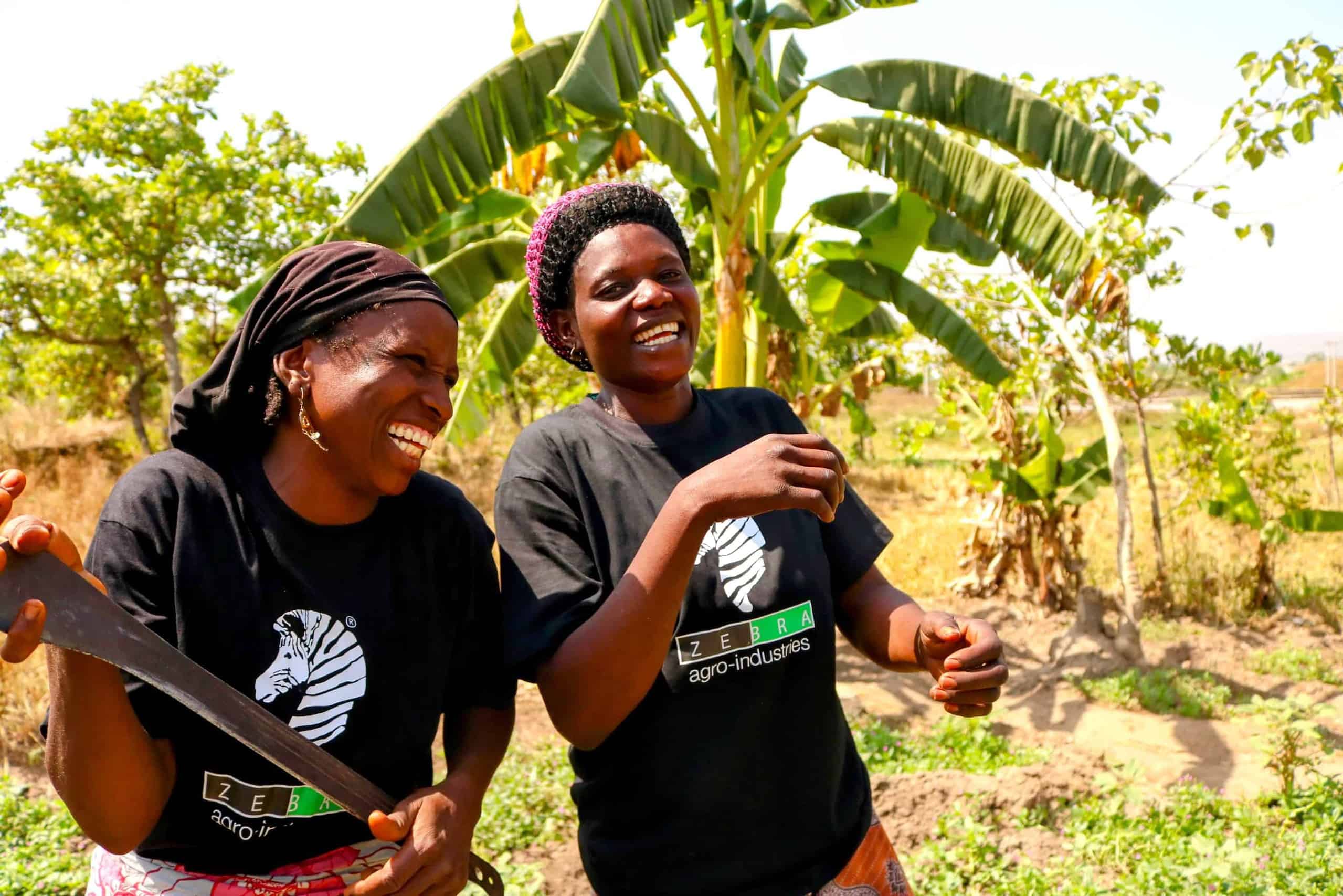Zebra CropBank’s 1960s-Inspired Vision for Nigerian Agriculture

- Blog
- Agriculture
- West Africa
Rice, maize, and soybean are pivotal grains in Nigeria. Cultivated all year round, they provide vital nutrition and protein, serving as the foundation of family diets. In states like Benue, often referred to as “the food basket of the nation,” these crops thrive in abundance. During the wet season, fruits like oranges, mangoes, and guava flourish and nourish local farmers and their families.
It’s a scene reminiscent of a distant time.
In the 1960s, Nigeria was one of the biggest exporters of palm oil, cocoa, and ground nuts in the world. Its government-owned farm settlements would provide land for farmers and support them with funding and connections to international buyers. Prices were fixed but farmers had access to markets. “This was our major source of income and it worked,” says Buffy Okeke-Ojiudu, a third-generation agricultural entrepreneur and the founder and CEO of Zebra CropBank, a new Acumen investee.
Nigeria’s subsequent reliance on oil as its major export throughout the second half of the 21st century hollowed out its agriculture industry and left the country on the brink of a severe food crisis. Over 17 million people now experience food insecurity, yet $8 billion in food goes to waste each year, due – in large part – to the absence of proper storage and processing facilities. Despite being a top ten producer of citrus globally, the country was importing over 90% of its fruit juice from overseas. “These are some of the products you see lined up on the road rotting away,” says Okeke-Ojiudu. “But yet, the [Fast Moving Consumer Goods] companies need citrus … It makes no sense.”

In response, CropBank is constructing the last-mile infrastructure needed to tackle food waste, improve farmer fortunes, and transform agriculture in Nigeria and beyond. Okeke-Ojiudu and his team are building storage and processing facilities at farmgate in dozens of locations throughout Enugu, Benue, and Cross River states in Nigeria. One by one, these storage facilities, known as “Banks,” make it more efficient, accessible, and transparent for farmers – 60% of whom are under the age of 35 – to manage, store, and monetize their produce. Banks can store 30 to 40 tonnes of product and can be constructed in approximately one week, using retrofitted cargo containers that utilize ambient aeration to extend the shelf life of grains and nuts.
“It has to be micro, it has to be smaller-scale, community-by-community” says Okeke-Ojiudu, of the infrastructure his country sorely needs. “You are creating almost like a McDonalds model. Think of England – every other high street has a post office. You can just go to your closest post office or find your closest McDonalds, which is probably around the corner. The same thing has to happen here, where that sort of infrastructure [to store and sell crops] is easily available.”
A recent study by 60 Decibels shows the vast potential of CropBank’s solution. Of the 188 farmers interviewed, 99% said they are accessing the service for the first time and 56% reported that their income had “very much increased” as a result of using it. “When you have a very good harvest, the need to store it becomes a big problem,” says a 58 year-old farmer from the southeast of Nigeria. “It means you might end up losing half of your harvest. But with Zebra CropBank, you are safe. They have provided us with a quality storage facility and better education which attracts buyers and in turn gives me good money to take care of my family.”

With CropBank, Okeke-Ojiudu is hoping to build a localized system that works just as well, if not better, than it did in the ‘60s. Previously, farmers had no choice but to rely on exploitative middle men who would inevitably force them to accept low prices for their produce, which they were desperate to sell before it perished. Now, farmers exchange at the last-mile, which enables them to become “price makers instead of price takers.” At the Banks, they can sell on their own terms, converting fresh crops to cash or to collateral for credit, when the farmer determines that the time (and price) is right.
Acumen’s recent investment of Patient Capital in CropBank, aligned with its new Trellis agriculture investment initiative, is an example of nurturing and enabling younger generations of Nigerians, such as Okeke-Ojiudu, to build models that can solve systemic problems of poverty. “This investment is a groundbreaking moment for us, as it signifies our inaugural investment in an Acumen fellow-founded company,” says Adekemi Ajayi, director of Acumen West Africa. “This strategic move underscores our dedication to empowering local entrepreneurs in their mission to address deeply rooted poverty challenges on a global scale, while also reaffirming our commitment to our fellows, who embody the principles of moral leadership. By supporting enterprises founded by Acumen fellows, we are harnessing the power of local solutions with a global impact.”
And that impact cannot be overstated. As Dr. Akinwumi Adesina, president of the African Development Bank, recently said: “Africa has 65% of all arable land left in the world. So what Africa does with agriculture will determine the future of food in the world.”
This is Acumen’s second investment under its partnership with the Challenge Fund for Youth Employment (CFYE), managed by the Palladium Group, Randstad and VSO, and funded by the Netherlands Ministry for Foreign Affairs. CFYE’s mandate is to improve the livelihoods and resilience of low-income communities by building companies and a market that creates and improves youth jobs (ages 15-35).